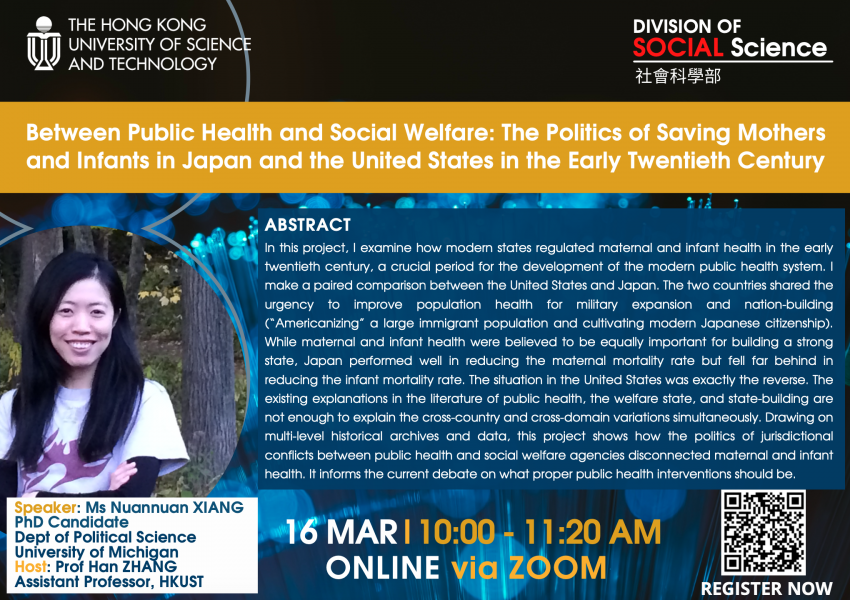In this project, I examine how modern states regulated maternal and infant health in the early twentieth century, a crucial period for the development of the modern public health system. I make a paired comparison between the United States and Japan. The two countries shared the urgency to improve population health for military expansion and nation-building (“Americanizing” a large immigrant population and cultivating modern Japanese citizenship). While maternal and infant health were believed to be equally important for building a strong state, Japan performed well in reducing the maternal mortality rate but fell far behind in reducing the infant mortality rate. The situation in the United States was exactly the reverse. The existing explanations in the literature of public health, the welfare state, and state-building are not enough to explain the cross-country and cross-domain variations simultaneously. Drawing on multi-level historical archives and data, this project shows how the politics of jurisdictional conflicts between public health and social welfare agencies disconnected maternal and infant health. It informs the current debate on what proper public health interventions should be.
Register for seminar HERE (UST Members ONLY)
Zoom meeting ID and passcode will be sent to successful registrants 2-3 days prior to the seminar. If you do not receive any Seminar details by 15 Mar, please contact somaster@ust.hk for enquiry.

